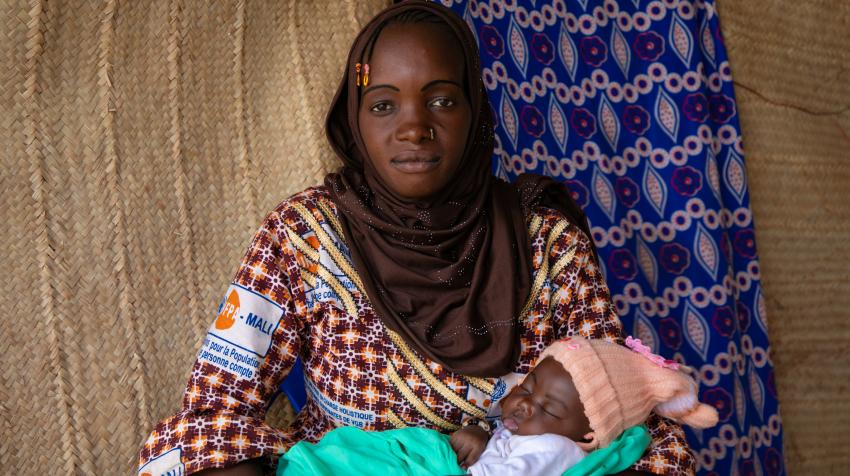September 2012, No. 3 Vol. XLIX 2012, Dialogue among Civilizations
2011 marked a decade since the United Nations General Assembly declared the year 2001 as the United Nations Year of Dialogue among Civilizations. At the same time, 2011 also represented the tenth anniversary of one of the most traumatic terrorist attacks of modern times. The juxtaposition of these two events shows, more than anything, the need for a firm commitment from all Member States of the United Nations to reduce and eliminate any notion of an ill-defined "clash of civilizations" which is rather a "clash of ignorances", through authentic dialogue among civilizations, cultures and peoples. Dialogue is not only a "necessary answer to terrorism but, in many ways, its nemesis," and one of the most effective ways "to promote the best in humanity."1 It implies reciprocity of communication and the acceptance that truth does not and cannot belong to a singular group alone. Since "conflict begins where dialogue ceases", it is essential to search for ways past political fragmentation and strive to find common ground for debate.2 Thus, the ideal of authentic dialogue among people belonging to different cultures and civilizations has never lost momentum or its driving force. It must just be adapted to an evolving political landscape in the current era of globalization.
The concept of dialogue among civilizations is not new for the United Nations. On the contrary, it is part of its fundamental structure, as underlined by former Secretary-General, Kofi Annan: "The United Nations itself was created in the belief that dialogue can triumph over discord, that diversity is a universal virtue, and that the peoples of the world are far more united by their common fate than they are divided by their separate identities".3 The Organization is meant to be "the natural home of dialogue among civilizations; the forum where such dialogue can flourish and bear fruit in every field of human endeavour."4 Today, faced with a new set of challenges, the United Nations must uphold once again its founding values and build through innovative approaches the basis for dialogue creating a new culture of belonging.
The outcome document of the United Nations Conference on Sustainable Development, as well as the UN System Task Team report: Realizing the Future We Want for All, put forward a clear agenda aimed to build and maintain peace through more inclusive, people-centred sustainable development. At the same time, both documents named globalization as one of the most important forces shaping our world today, with a vast influence on intercultural dialogue.
As the globalization process increasingly opens societies to one another and diversifies them internally, the new threats to peace are becoming political, social, economic, cultural, and environmental and sometimes a mix of all. They can take the form of intra- or inter-states tensions which may turn into conflicts, wars, transnational disease vectors, global terrorism, tsunamis, floods and droughts, water resources disputes, misuse of cyberspace, as well as the joint effect of all these forces, in producing disruptive social transformations and traumatic human population movements. These phenomena drastically change the conditions for dialogue and building lasting peace. While growth has spread in every continent, old inequalities remain and new ones are emerging. New technologies are bringing people together, yet many feel threatened, confused, foreign and excluded in this environment. Deep changes have touched not only the way in which we communicate but also the communication pathways, transforming many people into outsiders caught in a web of irreversible transformations.
As is evidenced in the persistence of glaring inequalities between and within countries, it becomes clear that our economic development is much more advanced than our political development. While dynamic intercultural encounters should, in principle, generate a positive impact on people and the societies in which they live, in many cases they generate anxiety and fear of identity loss. The growing connectivity, simultaneity and interrelatedness of our daily lives generate a randomness of encounter. Cultural borders are often negotiated in communication patterns of 140 characters (as in Twitter), caricatures or status updates on social networks. Thus, misunderstandings are no longer an exception but a growing trend, influenced by a certain absence of self-reflection, in the sense used by Edward Said in Orientalism when discussing the cultural construction of "the Other."5
It becomes urgent to rethink the intellectual and moral foundation of progress and reaffirm the humanistic values that should inspire the attitudes, behaviours and actions susceptible to produce, through dialogue and the free flow of ideas, global peace and shared prosperity. Indeed, greater account must be taken of the close links between cultural diversity, dialogue, development, security and peace. The United Nations Educational, Scientific and Cultural Organization (UNESCO) highlights the roles of education for all, shared science, resilient cultures, and accessible communication and information networks to build green, open, inclusive and participative societies where dialogue as a process becomes a universal need and aspiration, defying prejudices, established certainties, even fundamentalism and other radical attitudes.
In the context of diminishing resources, rising inequalities and shifting demographics, dialogue remains central: "Without this dialogue taking place every day among all nations—within and between civilizations, cultures and groups—no peace can be lasting and no prosperity can be secure."6 Thus, there is a clear need to make authentic dialogue among cultures and civilizations a reality of our daily lives. It is essential to bring across the message that the richness of the diversity of human cultures is something to be celebrated and deepened, not feared.
Taking all of this into account, how can politics enable a dialogue among cultures and civilizations in a broad sense? How can the United Nations lead reconciliation processes between the values of individuals and communities with universally shared values, without preventing local cultures from thriving and developing? Which tools are meant to help us re-imagine the limits of our own "cultural and civilizational life-worlds"7 and make place for more people, nations, creeds and cultures?
There are no simple answers, but it is clear that in a complex world where a sense of shared vulnerability fuelled by polarized perceptions and intercultural dissent can lead to violence and conflict and the spread of fanaticism and extremism, the United Nations must highlight our unity of purpose and establish common goals. The Organization can demonstrate, through contributions by all organizations of its system, that dialogue among civilizations is one of the strongest tools in overcoming the poverty of our imagination and the present financial, moral and ethical crisis.
Dialogue among cultures is at the backbone of UNESCO's action and is deeply entrenched in UNESCO's Constitution, which asserts "that a peace based exclusively upon the political and economic arrangements of governments would not be a peace which could secure the unanimous, lasting and sincere support of the peoples of the world, and that the peace must therefore be founded, if it is not to fail, upon the intellectual and moral solidarity of mankind". Therefore, UNESCO seeks to advance, "through the educational, scientific and cultural relations of the peoples of the world, the objectives of international peace and of the common welfare of mankind" by adapting its vision and action to the local and internation.al contexts. "Ignorance of each other's ways and lives", the Constitution continues, "has been a common cause, throughout the history of mankind, of that suspicion and mistrust between the peoples of the world through which their differences have all too often broken into war".
Over the years, UNESCO's investment in dialogue among cultures has been tremendous. From vast international undertakings like the early Major East-West Project in the 1950s, over the renowned Silk Route and Slave Route initiatives, which are still being broadened today, to the inclusion of interreligious and interfaith dialogue.
Indeed, the concepts used to shape the common aspirations of humankind have evolved alongside the international landscape. In this regard and in a rather chronological manner, the terms of "tolerance" (1995), "culture of peace" (2000), "dialogue among civilizations" (2001), "intercultural and interreligious dialogue" (2007) and more recently "rapprochement of cultures" (2010) were used to describe this conceptual, political and programmatic approach. Nevertheless, the one of "culture of peace" for which the International Year for the Culture of Peace (2000) and an International Decade for a Culture of Peace and Non-violence for the Children of the World (2001-2010) were created, both of which UNESCO has been designated as UN lead agency, remains a mobilizing concept as it encompasses, inter alia, respect for diversity, dialogue, human rights, gender equality and democratic participation to achieve international security.
UNESCO has been designated by the United Nations General Assembly as lead agency for the implementation of all resolutions related to the "culture of peace", defined as consisting "of values, attitudes and behaviors that reflect and inspire social interaction and sharing based on the principles of freedom, justice and democracy, all human rights, tolerance and solidarity, that reject violence and endeavor to prevent conflicts by tackling their root causes to solve problems through dialogue and negotiation and that guarantee the full exercise of all rights and the means to participate fully in the development process of their society" (A/RES/53/243).
Following the events of 9/11, the United Nations General Assembly adopted the "Global Agenda for Dialogue among Civilizations" and assigned UNESCO the lead role within the UN system. The Global Agenda provided inspiration and a common framework for future action, stating, inter alia, that dialogue among cultures and civilizations is a process aimed at attaining justice, equality and tolerance in people-to-people relationships, whose objective is to bridge the gap in knowledge worldwide about other civilizations, cultures and societies, to lay the foundations for dialogue based on universally shared values, and to undertake concrete activities, inspired and driven by dialogue.
The last years saw a decisive strategic move away from the conceptual discourses to a more practical level of action with new actors. Several steps were taken to that end, such as the focusing on activities and a move from the global to the regional arena, for a more concrete development of strategic objectives. One of UNESCO's most successful initiatives in the field of intercultural dialogue is the annual Summit of the Heads of State of South East Europe, an event which cements dialogue and cooperation in a region torn apart by civil strife and war not so very long ago. Ten annual Summits of the Region's Heads of State have thus far been held yielding concrete measures for regional dialogue, especially driven by the power of culture and cultural diversity. They constitute an exemplary record of vision, political will and commitment to act and bridge divisions through dialogue and promote cooperation.
Acknowledging that the paths to conventional dialogue shift permanently, in 2010, UNESCO Director-General Irina Bokova created a High Panel on Peace and Dialogue of Cultures in which eminent thinkers, artists and practitioners from different regions of the world, and with different intellectual backgrounds and orientations, imagine new avenues through which lasting peace can be developed, building on dialogue and reconciliation.
As inter-civilizational dialogue must draw on the contribution of multiple stakeholders from all walks of life, in 2008 UNESCO also signed a Memorandum of Understanding with the then newly created Alliance of Civilizations, in order to maximize their complementary roles. More recently, UNESCO adopted a new Programme of Action for a Culture of Peace and Non-Violence during its last General Conference in November 2011 which aims at making peace a tangible reality for all.
In a world of intricate interdependencies, where a conflict anywhere can spread conflict everywhere, it becomes urgent to understand that peace can disappear at once, even in countries where it has a long tradition. Lasting peace rests on a complex and fragile web of daily practices embedded in local settings and the most ephemeral encounters that individuals and communities creatively maintain out of the conviction that it constitutes the sustainable conditions for living together in dignity and shared prosperity.
Endowed with a "soft power" mandate, organically integrating the culture of peace, sustainable development and knowledge societies, UNESCO has the ambition and responsibility to foster inclusive creative change, to remain a lookout post for new challenges to lasting peace and to stimulate positive action through prevention, mediation, reconciliation and intercultural dialogue. To this end, UNESCO is working along certain strategic directions:
- Strengthening peace and non-violence through formal and non-formal education to achieve intercultural skills, such as empathy, spontaneous solidarity and hospitality reflecting the diversity of contemporary societies in an active, honest and lasting dialogue;
- Fostering social cohesion and inclusion, pluralist and democratic participation, notably through the empowerment of women and youth;
- Harnessing the media and ICTs to promote peace, non-violence, tolerance and intercultural dialogue;
- Promoting heritage and contemporary creativity as resilience tools for building harmonious interactions through dialogue;
- Reinforcing the role of education, the sciences, culture, communication and information in their capacity to create sustainable and inclusive knowledge societies in all regions of the world.
UNESCO seeks to advocate, through all its actions, a vision of a new humanism as a path to global ethics for the twenty-first century and thus to respond to the challenges of the dialogue among civilizations. Culture is an inexhaustible resource for nurturing dialogue and rapprochement.
In finding new ways of living together, the UN and its agencies must reinvent their approaches to intercultural communication and create premises for open dialogue. The fabrics of communities, cultures and civilizations are the narrative we first tell about ourselves, the stories we believe in. The UN can make these stories heard and understood at a profound level, and add a deeper awareness of the existence of the "Other," with its related history and values. In light of the above, what is required now is a set of specific institutional and policy mechanisms to assure that they are suited to the special political, technological and planetary conditions of our present era. To that end, it is imperative to adopt a holistic approach of policies conducive to human dignity, freedom, equality, mutual trust, shared responsibilities and intercultural solidarity, thus making sustainable peace the custodian for humanity's sustainable future.
Notes
1 United Nations General Assembly, Fifty-sixth session Agenda item 25 United Nations Year of Dialogue among Civilizations, A/56/523, November 2, 2001.
2 Address of UNESCO Director General, Irina Bokova, "The Dialogue of Cultures: New Avenues for Peace," 18 February 2010, High Panel on Peace and Dialogue Among Cultures.
3 Secretary-General Kofi Annan quoted in Address by Koïchiro Matsuura on "Dialogue among Civilizations and Universal Values" on the occasion of his visit to Peterhouse, University of Cambridge(2004).
4 United Nations General Assembly, Fifty-sixth session Agenda item 25 United Nations Year of Dialogue among Civilizations, A/56/523, November 2, 2001.
5 Edward Said, Orientalism (New York: Vintage Books, 1979.)
6 United Nations General Assembly, Fifty-sixth session Agenda item 25 United Nations Year of Dialogue among Civilizations, A/56/523, November 2, 2001.
7 Hans Köchler, "The Philosophy and Politics of Dialogue," Global Dialogue Conference 2009, 6 November 2009.
The UN Chronicle is not an official record. It is privileged to host senior United Nations officials as well as distinguished contributors from outside the United Nations system whose views are not necessarily those of the United Nations. Similarly, the boundaries and names shown, and the designations used, in maps or articles do not necessarily imply endorsement or acceptance by the United Nations.



